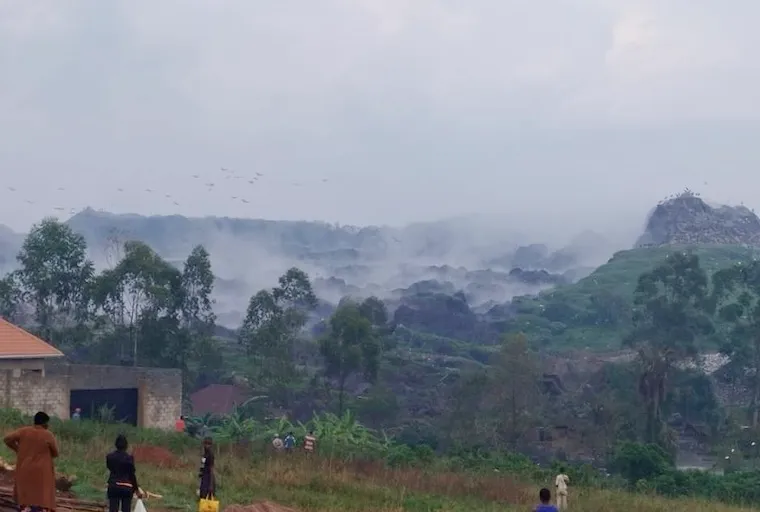At dawn, the air around Kiteezi landfill is thick—part fumes, part decay, part quiet anxiety.
It’s here, on the city’s northern edge, that Kampala’s waste has been dumped for decades. But now, the city is rewriting that legacy. With a $1 million grant from the government of Japan through UN-Habitat, Kampala Capital City Authority (KCCA) is beginning the long-awaited decommissioning of Kiteezi.
For city dwellers who have lived in the shadow of the landfill’s growing environmental risks and mourned the lives lost in the August 2024 garbage slide, the change is not just overdue. It’s existential.
“This is one of our biggest victories this year,” said KCCA executive director Hajjati Sharifah Buzeki at a press briefing on Monday.
“We are not just reacting. We are transforming how this city handles waste—from the ground up.”
The August 10 disaster still lingers in Kampala’s memory. The collapse of a waste mound displaced 142 households and left over 30 people dead. Among those facing charges of negligence and manslaughter are former KCCA executive director Dorothy Kisaka and her deputy, David Luyimbazi.
In the aftermath, KCCA launched an emergency compensation and resettlement program. So far, 18 households have received funds, with over Shs 2.14 billion allocated for the effort. An additional 70 homes and eight undeveloped land parcels are under valuation.
“We are addressing this both as a humanitarian crisis and a planning failure,” Buzeki said. “The days of waiting for tragedy before taking action must end.”
FROM DUMPING TO RESOURCE RECOVERY
KCCA’s strategy is no longer just about where garbage ends up, it’s about rethinking the entire waste cycle. In Buyala, 230 hectares of land have been secured for what Buzeki describes as a “game-changing” facility: a waste management and resource recovery center that will reduce, recycle, and convert waste into energy.
The first phase of the Kiteezi shutdown focuses on seven of the landfill’s most dangerous acres, addressing unstable slopes, leachate leaks, and methane buildup. Drainage upgrades are also underway to protect surrounding communities.
“Our waste problem isn’t just about garbage trucks. It’s about behavior, infrastructure and vision,” Buzeki said.
“Waste management must begin at the source—not the landfill.” But transforming a city isn’t just about building big. It’s about small things done right, and done often. Each weekend, KCCA leads a cleanup in one of Kampala’s parishes.
Residents sweep streets. Community groups collect plastics. Youth circles are contracted to maintain roads and public spaces, and KCCA has pledged to pay them on time.




